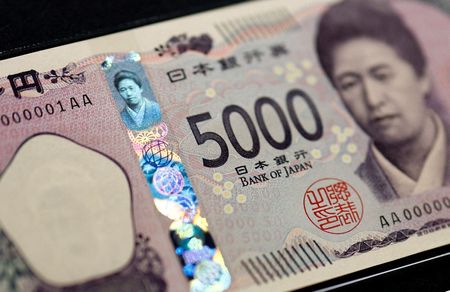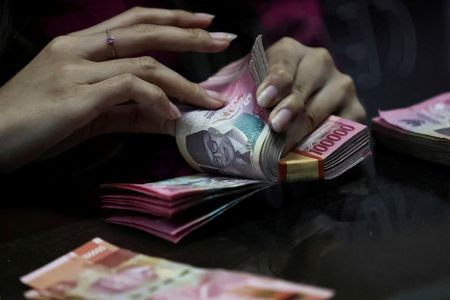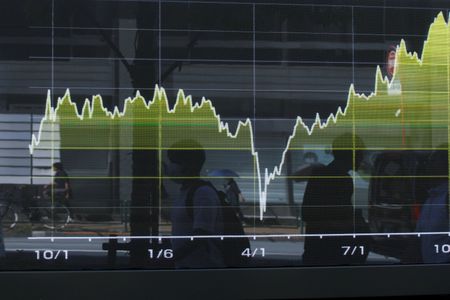By Samuel Indyk and Rocky Swift
LONDON (Reuters) -Political developments drove currency markets again on Tuesday with the yen falling to a two-month low after Sanae Takaichi’s leadership victory in Japan, while the euro remained fragile following the resignation of France’s prime minister.
Takaichi, who is expected to become Japan’s next prime minister, has pledged to jolt the Japanese economy with aggressive spending and has been critical of the Bank of Japan’s interest rate hikes.
Money market traders are now pricing in just a 25% chance that the BoJ will raise interest rates at its next policy meeting on October 30, from around 60% before Takaichi’s leadership victory.
“For this month, the BoJ will perhaps stay on hold just to be on the safe side but in December they’ll get a bit more data and I think they’ll deliver another hike,” said Mohamad Al-Saraf, forex research associate at Danske Bank.
“Inflation is still too high, rates are still too low, and the case for another BoJ hike this year is still alive.”
WATCHING CURRENCY MOVES
The yen was last down 0.2% to 150.70 per dollar, its weakest level since August 1, having dropped almost 2% the day before. Japan’s currency also skidded to 176.35 per euro, a fresh all-time low against the single currency, before rebounding slightly.
With the yen trading on the weaker side of 150 per dollar and at a record trough against the euro, Japan’s finance minister said authorities were watching out for excessive moves in currency markets.
As markets await more clarity on how Takaichi will structure her government, Japanese officials may try to talk the yen down from recent extremes, said Bart Wakabayashi, the Tokyo branch manager of State Street.
“We’ll see if the expected policies that she is tied to will come through,” Wakabayashi said of Takaichi. The 150 yen per dollar mark is “a very important level, psychologically and economically.”
“From an economic and corporate competitive perspective, where is the Bank of Japan and the Ministry of Finance comfortable? I do believe it’s at a lower level,” he added.
EURO ON THE BACK FOOT
The euro remained on a fragile footing following the resignation of France’s prime minister on Monday, adding to pressure on President Emmanuel Macron and putting fiscal consolidation in doubt.
France is now likely to miss a deadline to present its 2026 budget bill, meaning lawmakers will need to pass emergency stopgap legislation to authorise spending from January 1 until a full budget is approved.
Investors were closely watching the yield gap between French and German 10-year yields, a market gauge of the risk premium investors demand to hold French debt. The spread reached its widest level since January on Monday at 88 basis points.
The euro fell for a second day and was last down 0.3% at $1.1681.
Top policymakers at the European Central Bank, including President Christine Lagarde, said on Monday that the current level of interest rates was appropriate but that they may need to reduce borrowing costs slightly if the risk of inflation going too low increases.
Data on Tuesday showed German industrial orders unexpectedly fell in August, dragged lower by weak automotive industry and a decline in overseas demand.
The U.S. dollar has benefitted from the weaker euro and yen. The dollar index, which measures the greenback against a basket of currencies, rose 0.2% to 98.33, despite the ongoing U.S. government shutdown.
The shutdown delayed last Friday’s closely watched monthly jobs report for September and is set to postpone other key releases until the government reopens.
The lack of U.S. data meant investors were reacting to other developments more closely than perhaps they would have done, Danske Bank’s Al-Saraf said.
(Reporting by Samuel Indyk and Rocky SwiftEditing by Shri Navaratnam and Sam Holmes)










